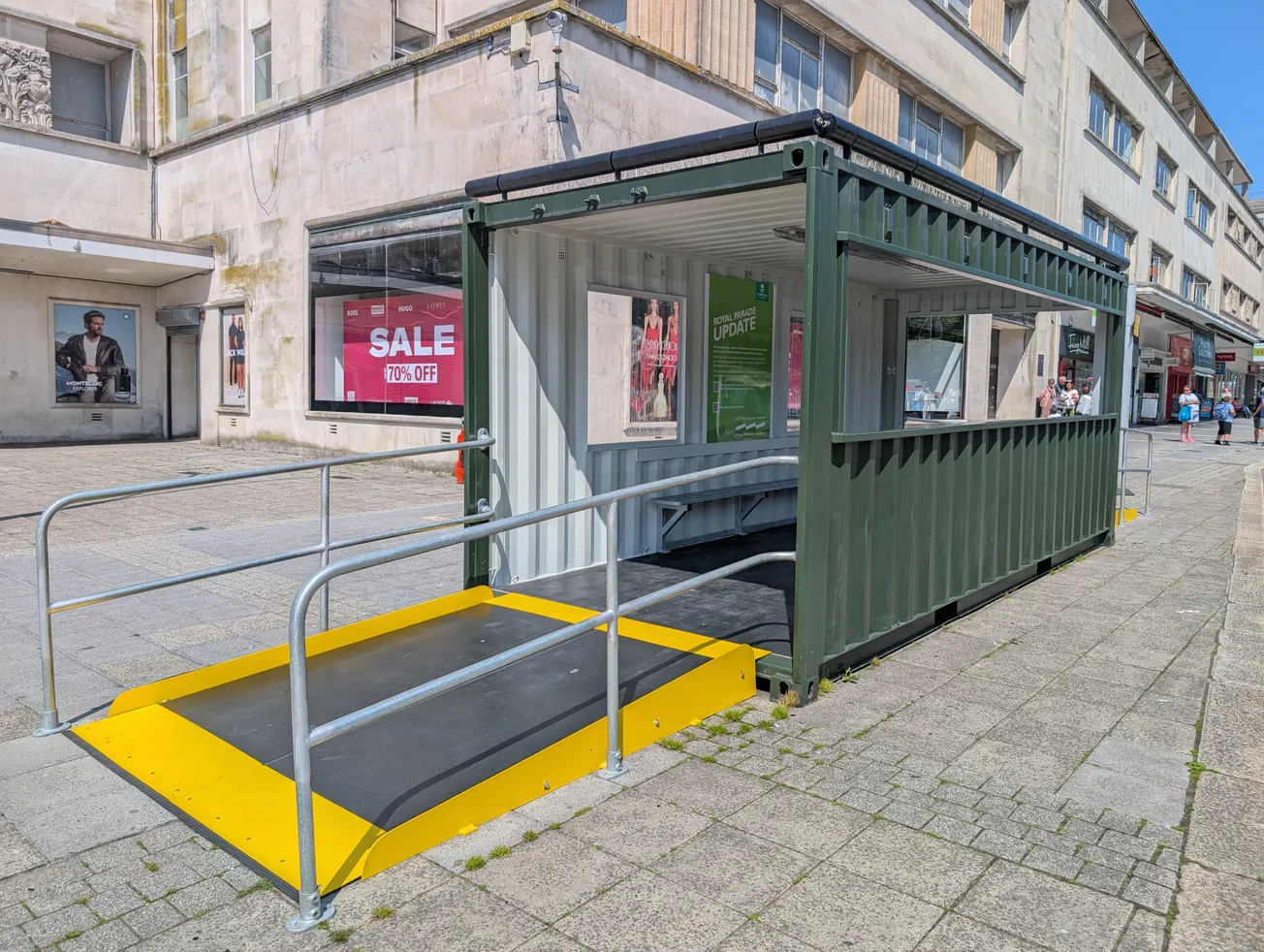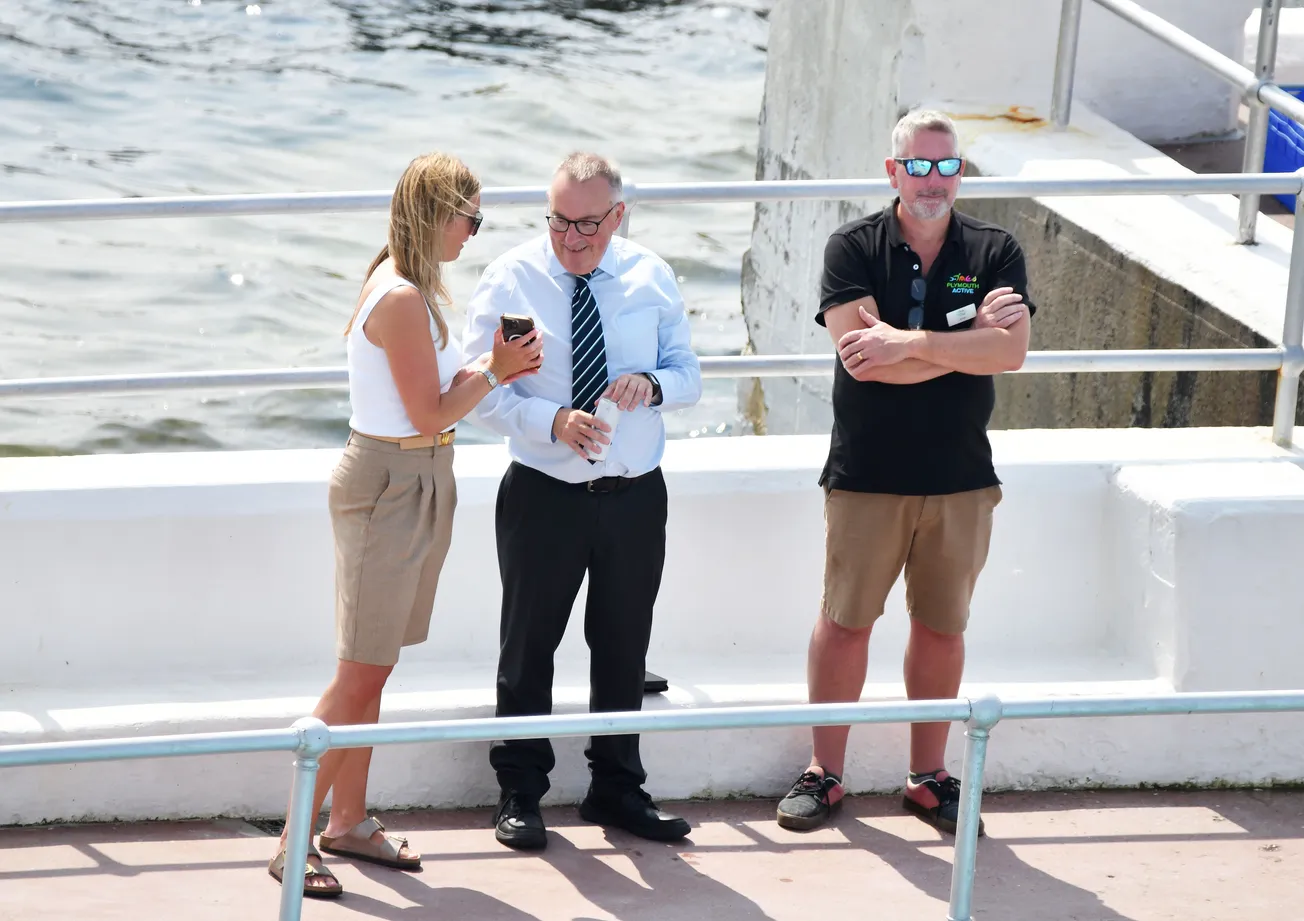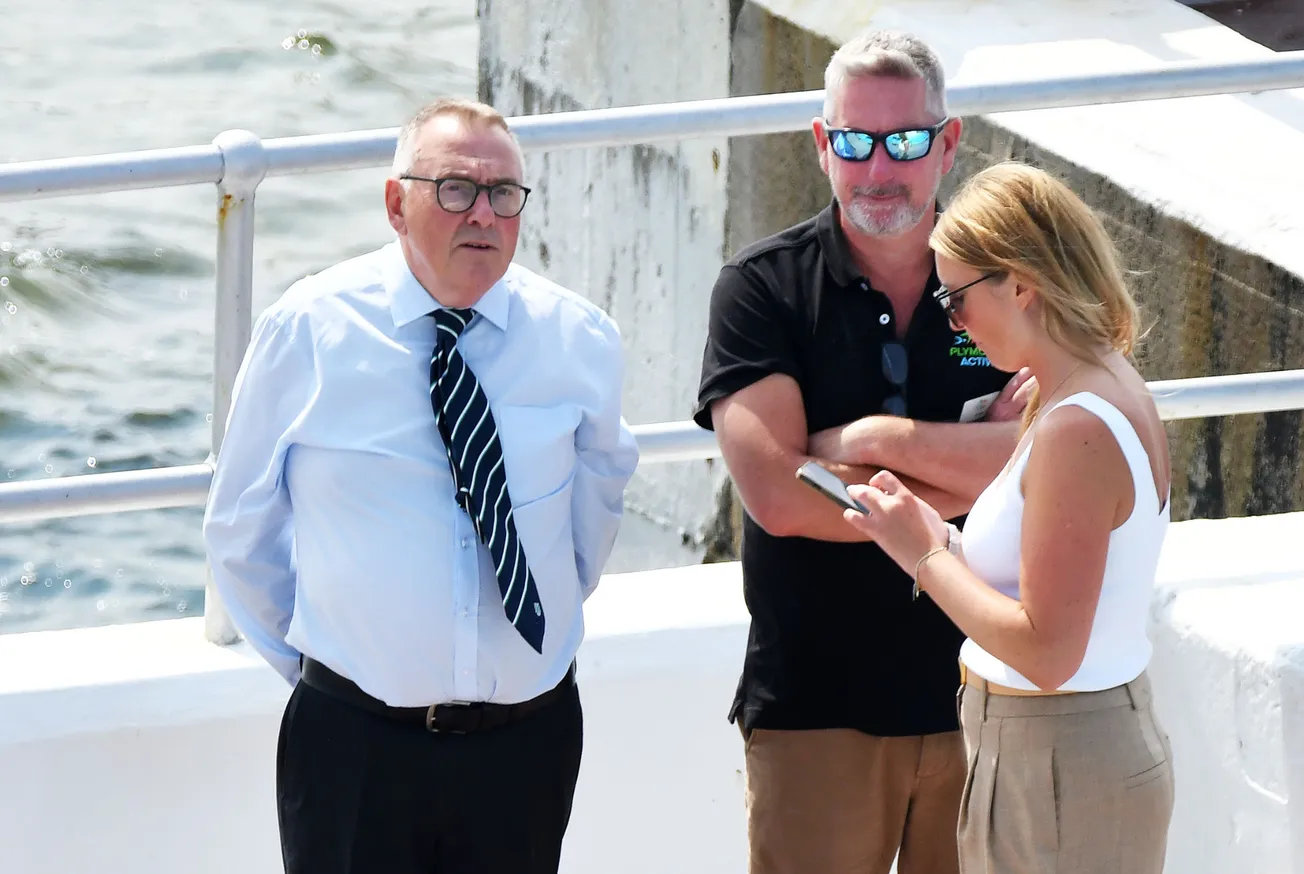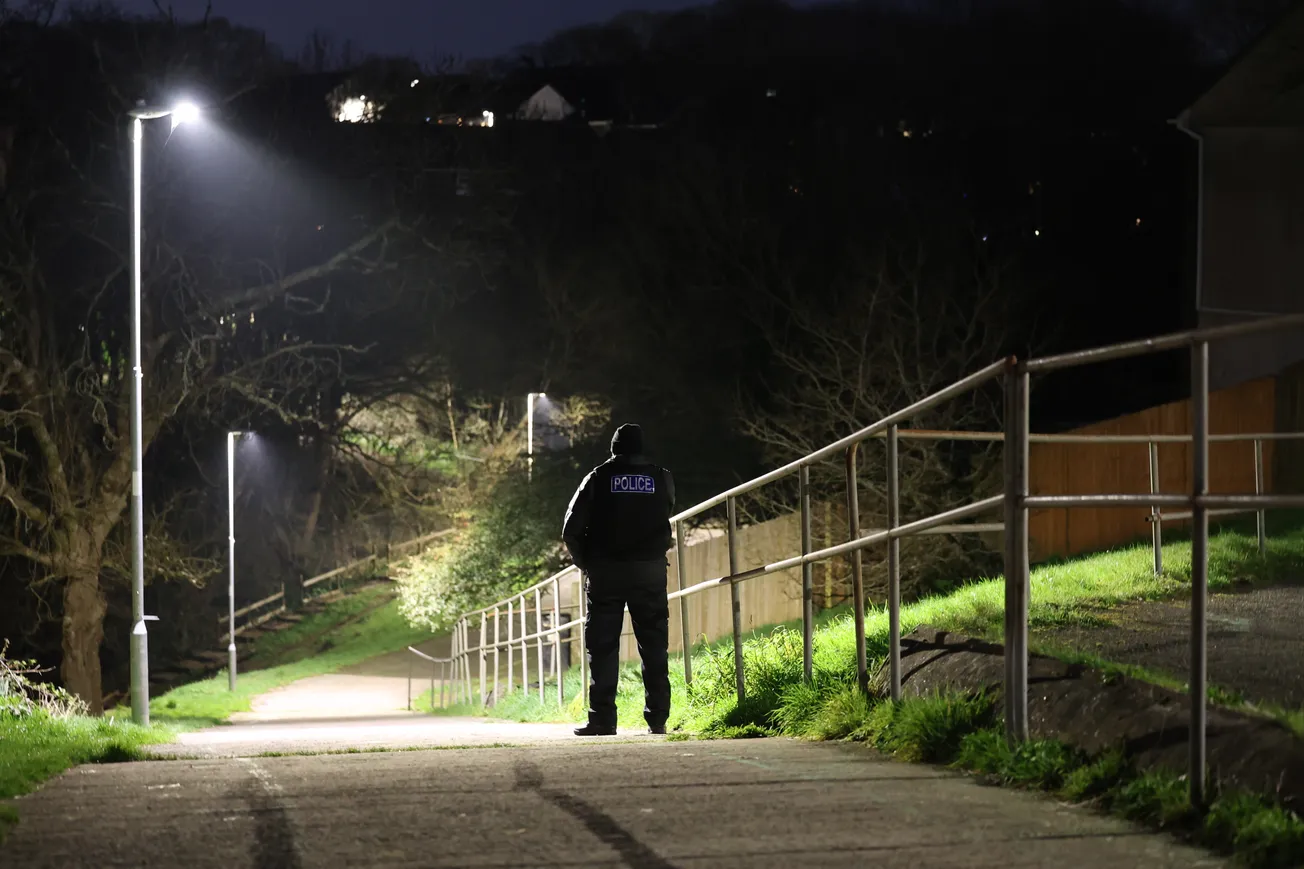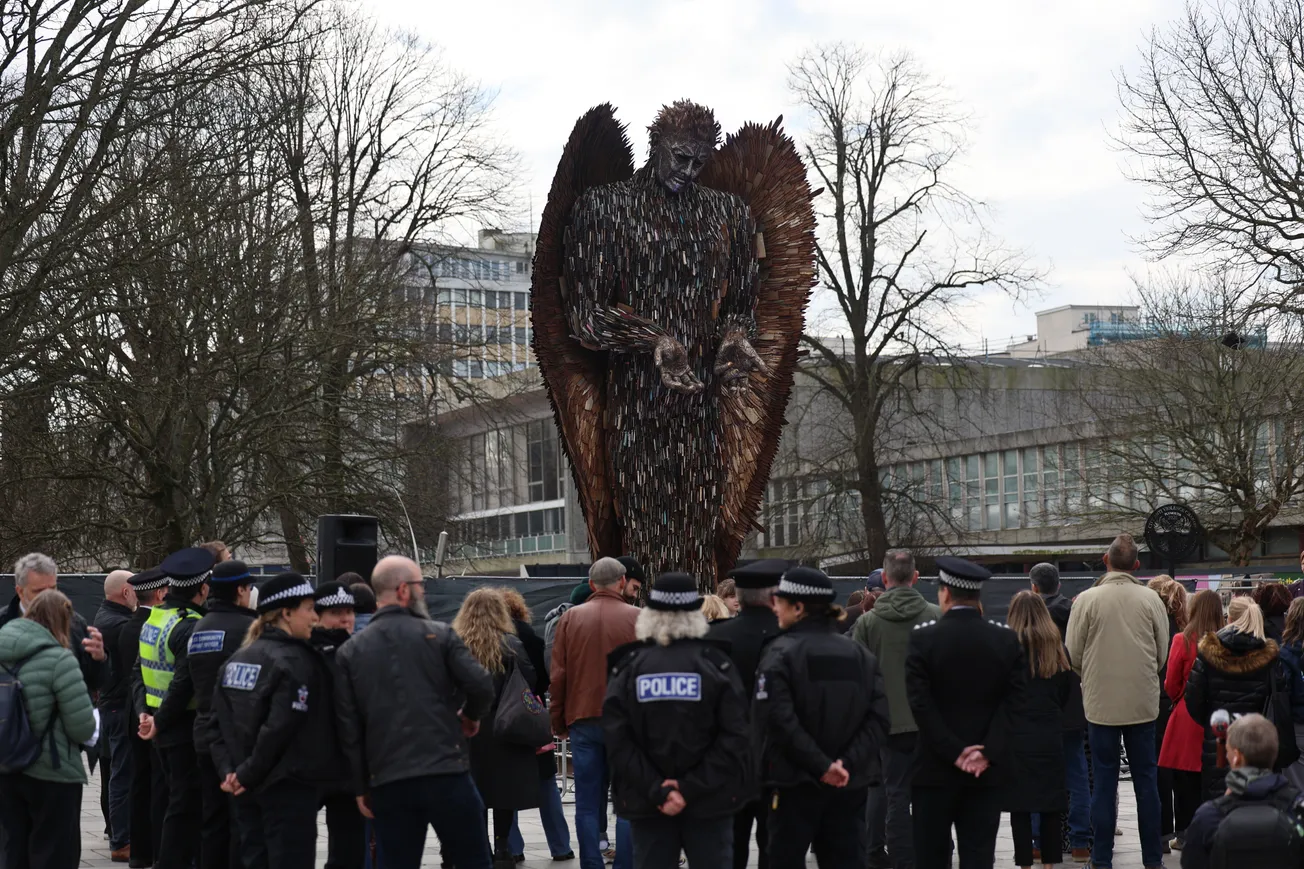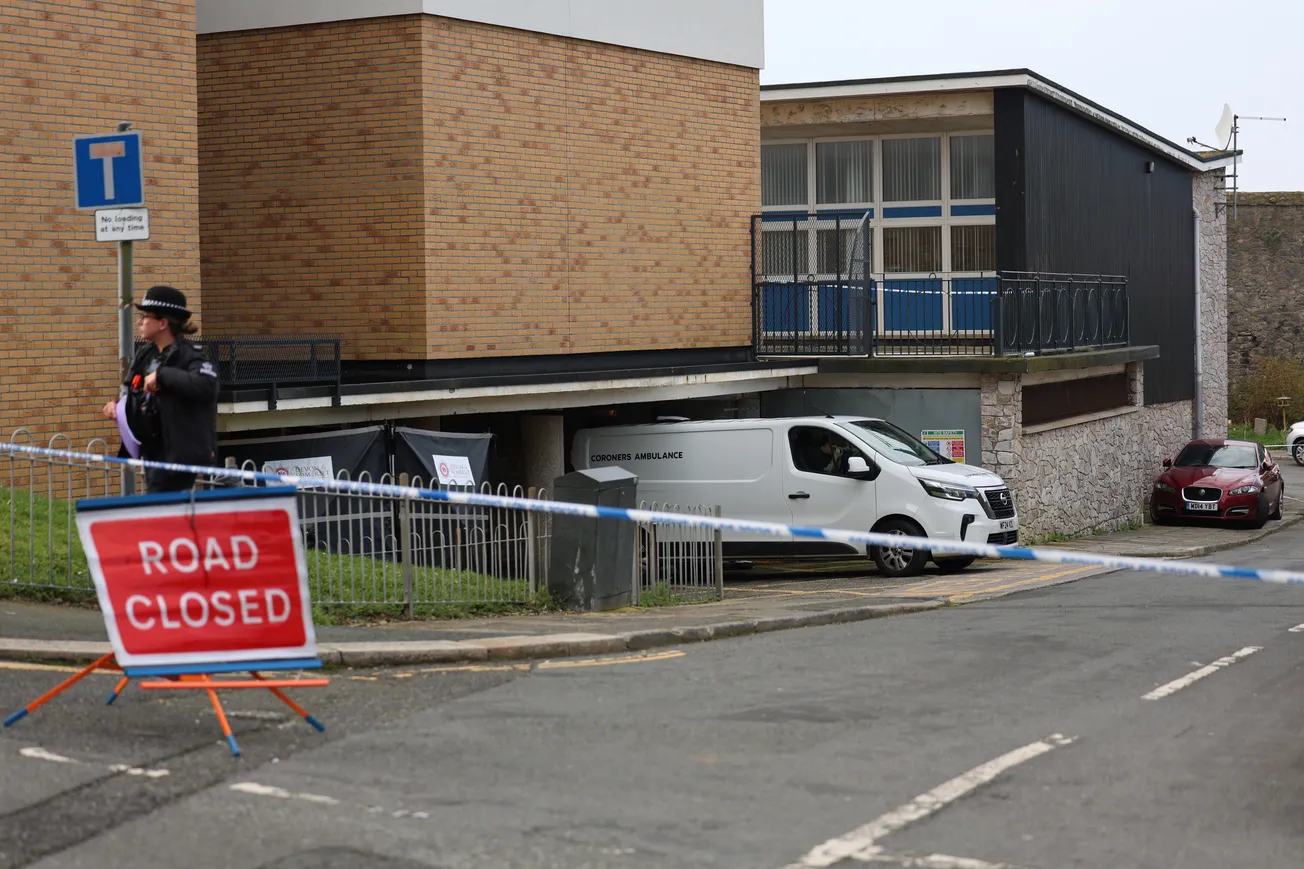Labour Council Leader Tudor Evans has signed off on yet another delay to Plymouth's £5 million Royal Parade bus improvement scheme, with decision-making documents obtained by Plymouth Plus revealing no end in sight for the troubled project.
On Thursday 5th June, Evans approved two critical decisions that effectively kicked the project further down the road, leaving commuters and residents frustrated as temporary measures at Plymouth's busiest bus interchange stretch on indefinitely.
The council agreed to defer the programme through a formal Business Case Change Request, while simultaneously allocating £248,058 from the Department for Transport's 2025/26 Bus Grant funding to keep the project alive.

According to the briefing report, the next step involves requesting a revised timeline from contractors - a process that will determine when work can actually begin. This leaves thousands of daily bus users facing continued uncertainty.
The most visible symbol of the project's troubles sits along Royal Parade itself. Where twelve proper bus shelters once stood, three converted shipping containers now serve as makeshift waiting areas.
The original shelters, owned by JCDecaux, were removed in coordination with what should have been the project's start date. Instead, their premature removal has left commuters exposed to Plymouth's unpredictable weather while works remain stalled.
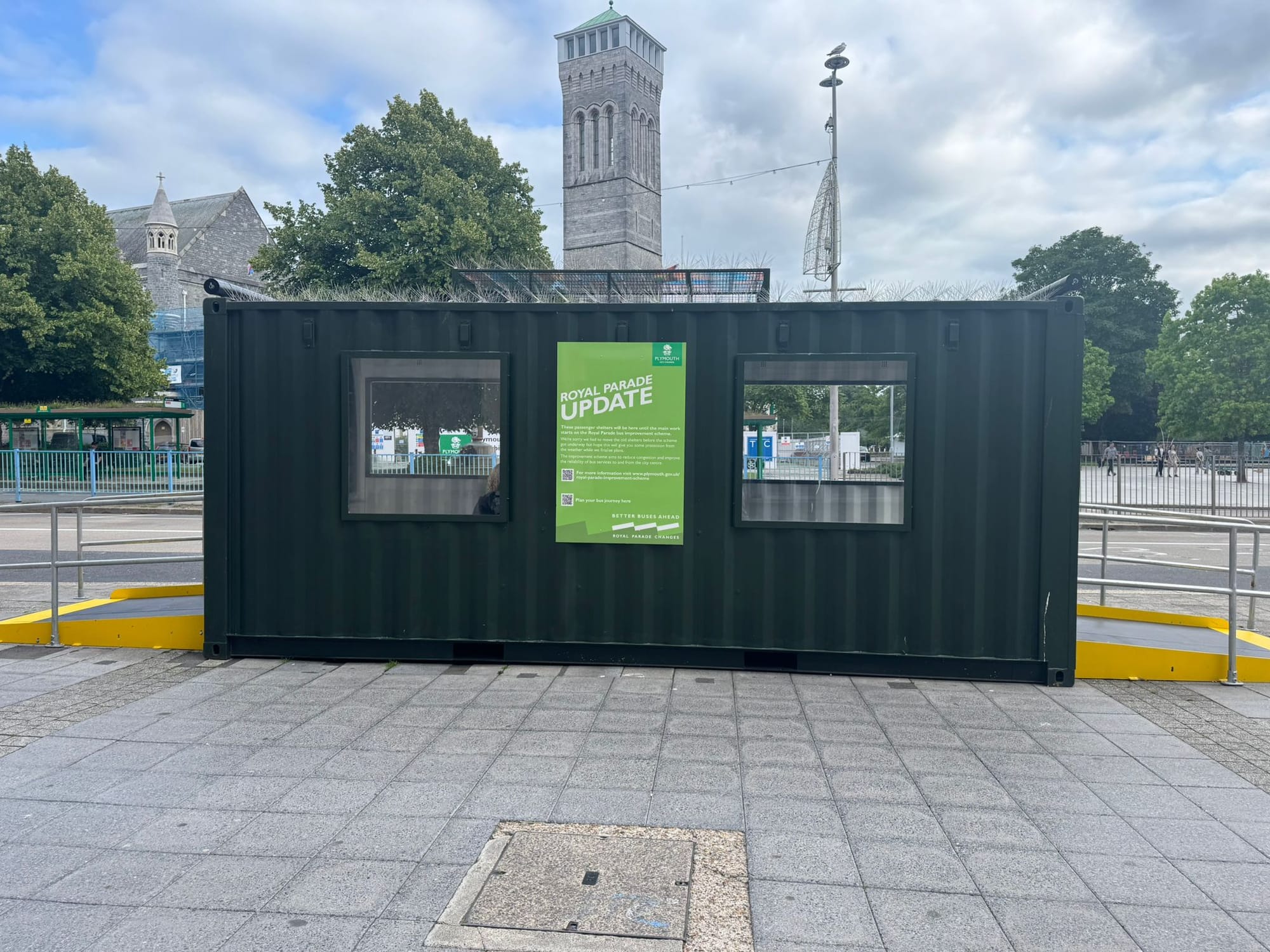
Former cabinet member Labour Councillor Mark Coker defended the unusual solution at the time, calling it "practical" and capable of being "in place relatively quickly." However, what was billed as a temporary fix increasingly appears permanent.
When complete, the Royal Parade scheme promises significant improvements to one of Plymouth's most critical transport hubs. The redesign will increase bus shelter capacity from 12 to 15 stops using an innovative "saw tooth layout" designed to improve passenger flow and reduce congestion.
Funding comes from multiple sources: Plymouth City Council, the Department for Transport's Transforming Cities Fund, and Historic England's Heritage Action Zone initiative. The project also includes new average speed cameras along the route.
The project's delays have sparked anger among Plymouth residents, particularly over the deteriorating street conditions around Royal Parade.
One clearly frustrated Plymouth resident told Plymouth Plus
"Royal Parade is one of the most visible parts of our city and what do we have? Bits of pavement taped together and shipping containers turned into bus stops,"
Another regular bus user asked,
"Why couldn't they have waited for the works to start before ripping out our bus shelters?"
The gaffer tape repairs have drawn particular scorn, with one resident describing them as
"sticking plaster solutions, the core Modus Operandi of Labour politicians"
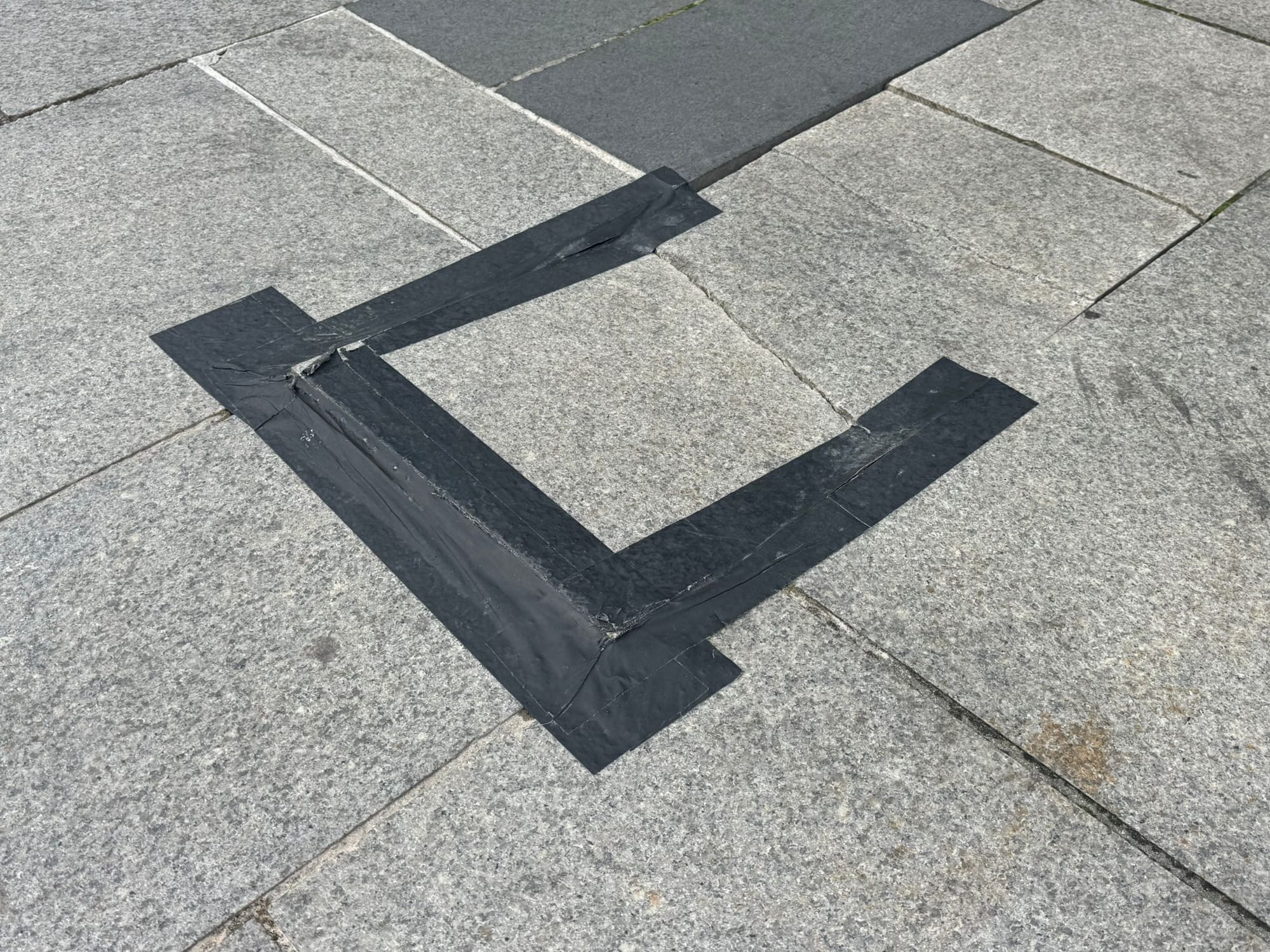
With contractors now being asked to provide a revised programme timeline to Plymouth City Council, the earliest realistic start date for meaningful progress remains unclear. The council's decision to defer the programme while allocating additional funding suggests that the project needs substantial recalibration.
For Plymouth's bus users, the wait continues. The city's busiest transport interchange - a gateway for thousands of daily commuters - remains defined by temporary shipping containers and deteriorating infrastructure, while the promised £5 million transformation stays firmly on the drawing board.
Sign up for free below to get notified with all the latest breaking news from Plymouth Plus.

